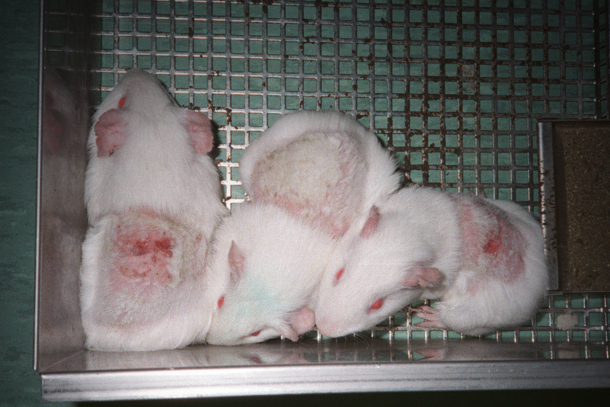Shoddy experiments on animals have been hampering the development of new medicines for decades, according to research conducted by an international team of scientists.
The survey of thousands of animal-based studies for drugs to combat disease found that the majority were poorly designed and not rigorous enough to give reliable results. As many as 97 per cent of studies did not take basic steps to eliminate bias, which can exaggerate the effects of candidate drugs, making them a colossal waste of time and money – and, of course, of animals’ lives.
Many of the badly designed studies were conducted by the UK’s top universities and published in top-tier journals. Only one study from the thousands of published papers by the UK’s top universities was considered to meet all four measures seen as critical for reducing bias.
This isn’t a problem isolated to the UK. A separate study by Canadian researchers revealed that flawed animal studies over-estimated the effectiveness of a new kidney cancer drug by up to 45 per cent.
The Canadian team also reported a publication bias: studies that showed that drugs had little or no effect were not even published. This means that we simply don’t get to hear about the unlimited number of cases in which the treatment failed. You can only imagine how many animals died in those experiments and the number of times the same deadly experiment has been repeated by separate teams, unaware of the initial failings.
For anyone familiar with the flawed system that requires all new drugs to be tested on animals, these findings are not surprising. We’ve long known that experimenting on animals is not the best way to find cures for human diseases – as one of the Canadian researchers, Dr Jonathan Kimmelman, says:
“Only a fraction of drugs that show promise in animals end up proving safe and effective in humans.”
Animals used in medical experiments suffer immensely. They may be injected with deadly diseases, poisoned, force-fed chemicals, cut open, electrocuted or blinded or have electrodes drilled into their brains. They spend their lives in barren cages in windowless laboratories and are usually unceremoniously killed once the experiment is over.
The news proves, once again, that animal tests do a disservice to animals and to science. There are better and more reliable ways to develop the life-saving drugs we need, without tormenting and killing animals along the way.
The post New Report: Flawed Experiments on Animals Are Holding Back Medical Progress appeared first on PETA UK.
